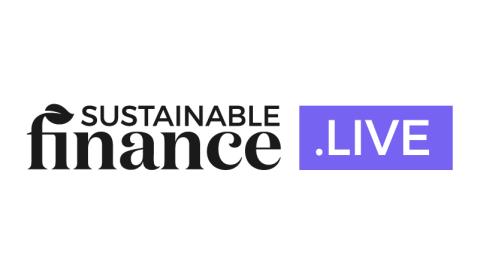At Sustainable Finance Live 2025, Andrew Watson, co-founder of Rethinking Capital, initiated a panel focused on sustainable accounting by emphasizing the shift towards an economy driven by intangible assets. He noted that 1997 marked the last significant year in which technical accountants were integral to discussions at COP.
During the session titled “Accounting for Sustainable Data Centres,” expert panellists Diba Salam, founder of StudioDS; Hanna Fiegenbaum, sustainable integration lead at WoodenValley; and Rachael Steller, resilient infrastructure lead at the Climate Change Committee, discussed how emerging accounting principles could better represent sustainable investments.
Salam began the dialogue by highlighting the evolving values in architecture amidst shifting regulations. She pointed out the challenges posed by new barriers related to regulatory requirements in planning. “How do we mobilize the value of people and nature? What initiatives can we implement?” she inquired, expressing optimism about unlocking this value through comprehensive life-cycle analyses of buildings and cities, rather than merely meeting planning requirements.
Fiegenbaum, who specializes in nature-based and climate-resilient projects, addressed the need to assess land suitability for climate adaptation and whether there is control over the associated assets. “Accounting rules shape our budgeting and financial planning. Different financing pillars affect whether investments can be capitalized,” she explained, noting that accounting influences both asset management and economic resilience.
Steller outlined the primary barriers to investing in resilience that she encounters in her role:
1. Absence of universally accepted measurable targets for climate mitigation and adaptation.
2. Unclear distribution of roles and responsibilities among necessary stakeholders.
3. Perception of adaptation and resilience initiatives as costs instead of benefits.
4. A tendency to focus excessively on short-term outcomes at the expense of long-term planning.
Watson shared insights from a pilot project in which a company redefined incentives through sustainable accounting using established standards. Although the company remains anonymous for confidentiality, it aims to aggregate 1.2 million tonnes of Scope 1 and 2 carbon emissions and achieve carbon neutrality by 2025. He described this endeavor as acknowledging intangible asset obligations that conventional accounting does not recognize, facilitating informed future decision-making and supplementing TCFD non-capital information.
“We received a clarification from the IASB concerning IAS 37, which indicated that such commitments could be recognized as constructive obligations, allowing us to establish an obligation. For instance, the company can apply a shadow carbon price to estimate its business friction costs, thus determining an obligation of approximately $125 million over five years,” Watson detailed. He added that this approach fosters accountability, making it difficult to revert without an accounting impact while also enabling investment capitalization.
To fulfill IAS 37 obligations, Watson enumerated key initiatives:
1. Transitioning to renewable energy sources across production sites.
2. Retrofitting facilities to enhance energy efficiency.
3. Investing in natural solutions.
Steller emphasized the challenges posed by legacy data centres, which often lack resilience compared to newer facilities. “Current data centres require significant efforts to ensure they are resilient, especially given the rapid technological advancements and increased awareness of climate change,” she noted. She expressed concern regarding the significant risks posed by legacy infrastructure and the limited incentives for retrofitting them. Addressing roles and responsibilities is crucial, she asserted, as people are more willing to participate in initiatives that add value rather than incur costs.
Salam concluded by advocating for alignment between the regulatory and financial landscapes, stressing the importance of engaging both citizens and government in discussions on resilient infrastructure. “Nature and people are intertwined; both must flourish together,” she affirmed.
In his closing remarks, Watson reiterated the necessity of including accountants in discussions about COP and climate financing. He emphasized that Sustainable Finance Live aims to cultivate a community of investors and projects, asserting that the ongoing efforts will influence decision-making and open new channels for investments, provided the right conditions are established.
